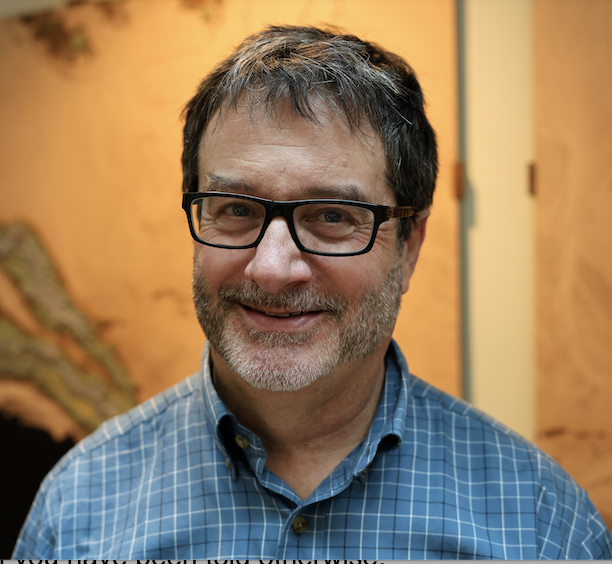EAS Alumni Magazine October 2023--Message from the Chair
Dear Alumni and Friends,
The last year has been very successful for EAS. We held three events honoring the careers of EAS faculty, one for Muawia Barazangi last fall, a CCAMS-hosted spring event for Mark Wysocki and Steve Colucci, and an INSTOC June event honoring the careers of Sue Kay, Terry Jordan and Rick Allmendinger. At the same time, we have grown our impressive cohort of new faculty. Assistant Professors Grace Barcheck, Riley Culberg, and Dan Visioni all started this summer; they are profiled later in this magazine. Also this summer, we have successfully hired as Assistant Professor Carolina Munoz-Saez in the field of critical minerals, and Research Assistant Seth Saltiel in the field of ice and rock friction and geothermal systems, both arriving this winter. This represents a huge change in EAS, with over half the faculty hired in the last five years and three-quarters in the last decade. Should you visit, it will feel a very different place from when you were a student.
 A special congratulations go to Professor Susan Riha who has retired this June, after many decades of service to Cornell. Susan has been the C.L. Pack Professor of Forest Soils and provided a crucial link between agriculture, the CALS part of EAS, and the terrestrial science that has long been done in Snee Hall. Best of luck to Susan!
A special congratulations go to Professor Susan Riha who has retired this June, after many decades of service to Cornell. Susan has been the C.L. Pack Professor of Forest Soils and provided a crucial link between agriculture, the CALS part of EAS, and the terrestrial science that has long been done in Snee Hall. Best of luck to Susan!
With that change comes an incredible increase in energy, and a big burst in research success. The success ranges from very large programs such as the Cornell University Borehole Observatory, profiled last year and barreling toward a hopeful Phase 2, to highly impactful first grants awarded to pretty much all our Assistant Professors. It has happened fast, and shepherding this transition has been probably the most rewarding part of serving as Chair.
A parallel success has been growth in the numbers of majors in the last two years, both in the Atmospheric Sciences degree and the EAS degree. The EAS major has seen huge growth in new Climate Science and Environmental Science concentrations, launched in 2020-2021. With the increase comes a set of new challenges, like how to manage a major when critical classes reach room capacity, and how to more efficiently use the teaching laboratory space. These are good problems to have, and highlight the popularity of the program. The growth of the undergraduate programs clearly reflects the degree to which students similarly see great value in what we do. That in turn highlights the centrality of Earth and Atmospheric Sciences to address many of the planet’s largest challenges. How does humanity survive and thrive on a planet with finite resources, and how do we understand the long-term and short-term hazards that stress that survivability? Addressing these questions has become central to our department’s mission, and also a major focus of the strategic goals for both of our colleges and the university.
Recruiting and retaining faculty of the highest caliber propels profound advancements in science with broad-based societal impact. Whether it is a state-of-the-art geochemical analytical facility, HPC computing clusters or field equipment, top-tier faculty require top-tier support from Cornell and from EAS. One Cornell tool for providing such support is the endowed Faculty Fellows program. If this is something that interests you, or you have any other questions about giving opportunities (see below), feel free to contact Alumni Affairs & Development, Keith Hannon at Engineering, Christy Agnese at CALS, or go to Give to EAS.
Regards,
Geoff
Giving Opportunities
Support EAS
Earth and Atmospheric Sciences has been undergoing a period of vigorous faculty renewal which is driving changes in the research thrusts of the department, the graduate and undergraduate curricula offered, and the relationships with other departments in the College of Engineering, CALS, and Arts and Sciences.
The department’s presence in three colleges and exciting new initiatives afford tremendous opportunities for impact across the campus and with the outside world.
With new opportunities come special needs associated with rapid growth and a university business model that compels departments to function autonomously.
For more information on how your support can make a difference, please contact Alumni Affairs & Development – Keith Hannon at Engineering, Christy Agnese at CALS, or go to Give to EAS.
Support CU GeoData
CU GeoData is a student-run project team composed of students passionate about integrating the fields of earth and atmospheric sciences with engineering. They build and deploy novel instrumentation to record atmospheric, geologic and hydrologic variables to develop innovative solutions to pressing environmental challenges.
You can support CU GeoData’s environmental research of the Cayuga Lake and greater Tompkins County region through Dec. 1 by visiting Cornell’s Crowdfunding Initiative website here, and you can support the student organization anytime by visiting their website.

